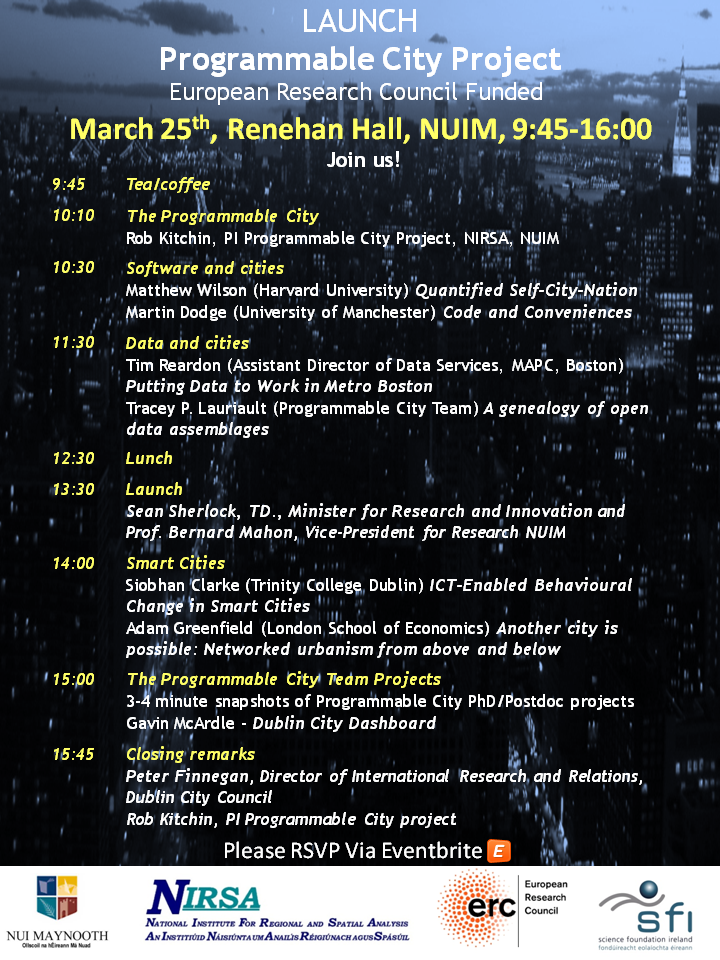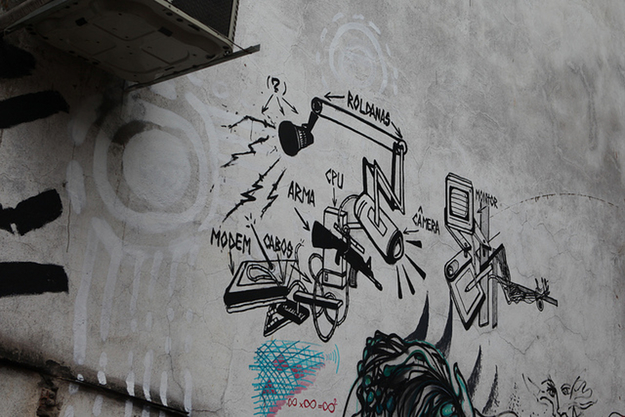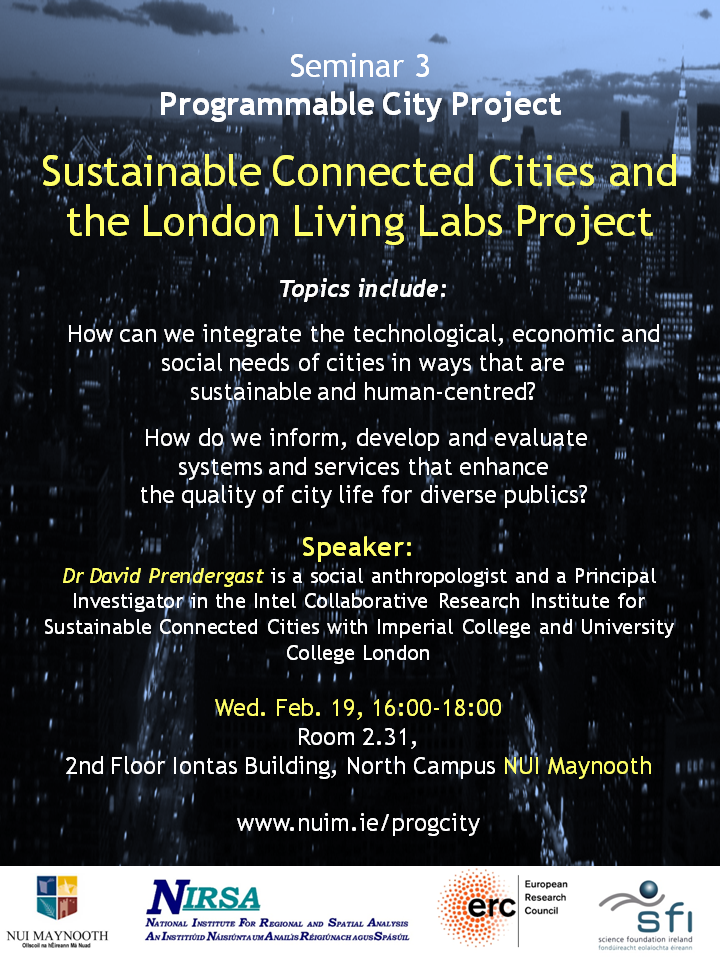We have 3 great launch events coming up and you are invited! See below.
- Official Programmable City Project launch is Tuesday March 25th, starting at 9:45 AM, with a break for lunch, and ending at 4PM. We have a great lineup of international and local speakers. Sean Sherlock, TD., Minister for Research and Innovation will officiate the launch in the afternoon. Details here! We need a count for lunch so Be sure to RSVP via EventBrite.

2. On March 24th, 7-9 PM, in the eveing we are supporting a Public Event: Rethinking the Smart City: A Primer, organised by Provisional University & Dublin Art & Technology Association. Adam Greenfield will be speaking, Rob Kitchin will provide introductions and Aphra Kerr (NUIM), Jim Merricks White (NUIM) Rachel O’Dwyer (TCD). Come to , Corner of Fenian Street 7 Westland Row, Dublin 2. Read more details here! Space is limited so please .

3. Also, in the afternoon of March 24th, between 2-4PM, we have a Reading Seminar Mapping, Data & Urban space – w/Matthew Wilson at NUIM, Room 2.31, 2nd Floor, Iontas Building, North Campus, NUI Maynooth (Map). Read details here. 
Parking information can be found at http://progcity.maynoothuniversity.ie/about/nui-maynooth/.

